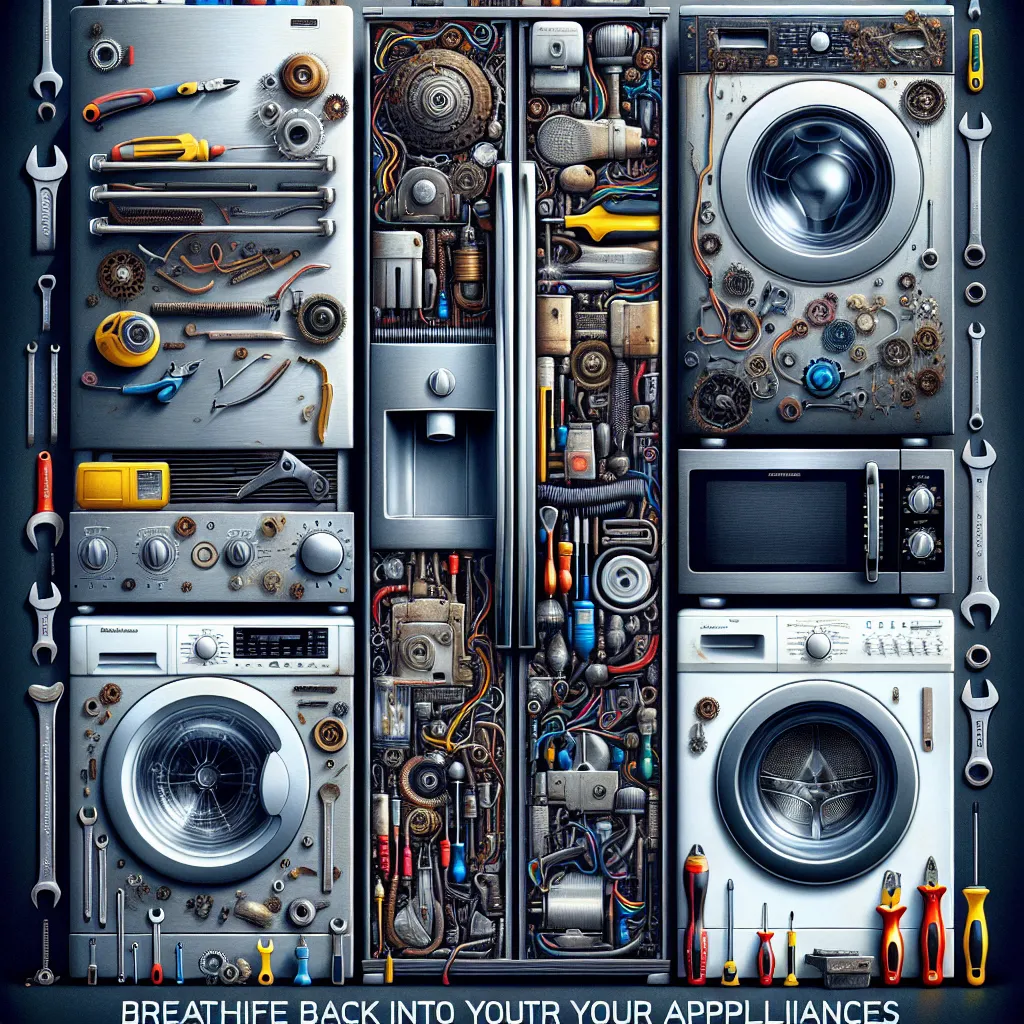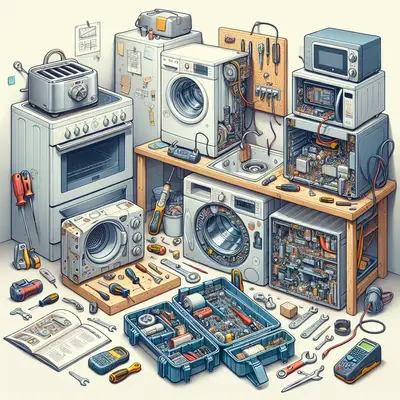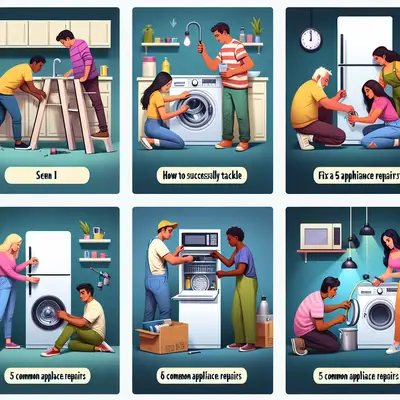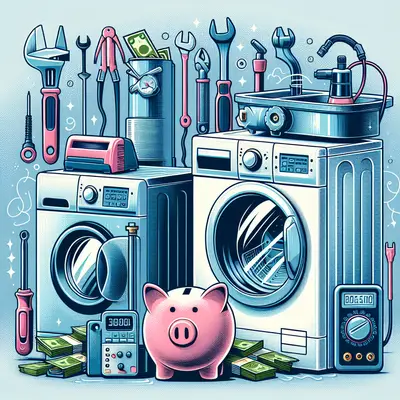Have you ever been left frustrated with a malfunctioning appliance? Before you rush to replace it, why not try some DIY repair techniques? We've compiled a list of valuable repair tips that can save the day, and your pocket. Let's dive right in!
1. Learn to Decipher Error Codes
Most modern appliances flash error codes when they're not functioning correctly. These can be confusing and intimidating, but they're actually your first clue to what's going wrong. The user manual often contains a list of these codes and what they mean. If you lost the manual or it doesn't include this information, a quick online search with the brand and model number should do the trick. Deciphering these codes can help you understand the problem and guide your repair process.
2. The Power of a Good Clean
Sometimes, the issue with your appliance might be as simple as it needing a good clean. Dust and grime can build up over time, causing your appliance to overheat or not function correctly. For example, a refrigerator that's not cooling properly might just need its condenser coils cleaned. So, before pulling out your tools, pull out your cleaning supplies first.
3. Check the Basics
Before you dive into complex repairs, make sure to check the basics first. Is the appliance plugged in correctly? Has a fuse blown or a circuit breaker tripped? Are the filters clean? It might sound obvious, but these simple things are often overlooked and can save you a lot of time and trouble.
4. Keep Spare Parts Handy
For appliances that you use frequently, consider keeping a few common spare parts handy. This can include items like bulbs, filters, or fuses. Not only will this save you time when you need to make a quick repair, but it can also save you money as these parts are generally cheaper to buy in bulk.
5. When in Doubt, Consult a Professional
While DIY repairs can save you money and be satisfying to complete, it's important to know your limits. If you're unsure about a repair or if it involves electrical or gas components, it's safer to consult a professional. Remember, safety should always be your number one priority.
Conclusion
With these practical repair tips, you're now equipped to tackle a range of common appliance issues. Remember, the key to successful DIY appliance repair is understanding the problem, being prepared with the right tools and parts, and knowing when to call in the professionals. Happy fixing!



